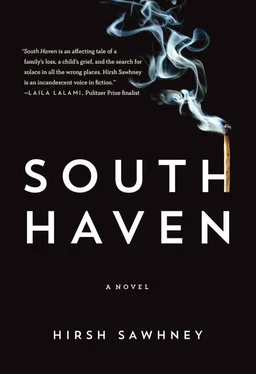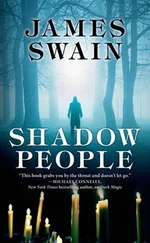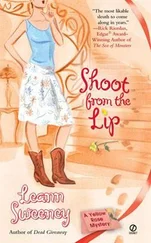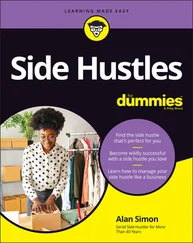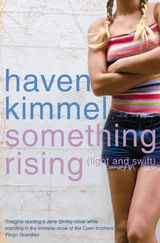The old man squinted at Marc and nodded. “That’s right. I know your father — knew your grandfather too.”
Mohan Lal took off his blazer and sat on a bench. “Sir, are you Paulie?”
“Me? No. Paulie was my grandfather. Moved here from Ireland and worked the gun factories. Started this place up back in 1892—exactly a hundred years ago.” He winked at Siddharth. “So where you folks from?”
Siddharth’s pulse quickened; he hated that question.
Ms. Farber sat down next to Mohan Lal. “Oh, we’re from the area.”
“Actually,” said Mohan Lal, “before Connecticut I was a New Yorker.”
The old man rolled down his sleeves and buttoned them. “Ah, the melting pot.” He sat on the only empty barstool, patting the tall cop on the back. “Used to deliver groceries for my uncle in the Bronx. But where are you from —I mean your people.”
Ms. Farber placed a hand on Mohan Lal’s knee. Siddharth wished she wouldn’t touch him like that in front of strangers.
“Me?” said Mohan Lal, pointing at himself. “By birth I am an Indian.”
“Thought so.” The old man snapped his fingers. His smile widened, revealing a silver-capped incisor. “I spent more than a year of my life in your country. Was stationed in Karachi during the war, and once it was all over, I traveled around with my buddies — some of the best months of my life.”
Ms. Farber tilted her head. “You mean World War II? My father—”
“What a country! You’ve got everything over there. Deserts, mountains. And those cities — they’re something else.” The old man spread his arms to convey the grandness of these things, winking at Siddharth again.
Mohan Lal was grinning. “Why, thank you.”
Siddharth sipped his cream soda, wishing the old guy would leave them alone. He was glad Marc was watching the game, not listening.
“Kashmir,” said the man. “That place had the most beautiful ladies. Bet you a hamburger that’s where your people are.”
“I had some family there.” Mohan Lal loosened his tie. “But you could call us Punjabis.”
The man shook his finger at Mohan Lal. “My second guess. I swear it was gonna be my second guess. The Punjab — Golden Temple — Amritsar. I bet that’s your city.”
“Actually, I’m from a small place near a city called Peshawar.”
Siddharth was confused; these places were totally unfamiliar to him.
“Which town?” asked the man.
“Abbottabad.”
The man snapped his fingers a second time. “Oh, I’ve been there. Been everywhere in Pakistan.” He cocked his head to one side. “Muslim?”
“I’m a Hindu — from a Hindu family, that is.”
“So you were a refugee?”
Mohan Lal stroked the stubble that had started to shadow his cheeks. “Yes, we had to move.”
The old man puffed up his cheeks and sighed. “It’s just awful what they did to each other. Saw the photographs in Time magazine. So much bloodshed in such a holy place. I tell you — brought tears to my eyes.”
Mohan Lal shook his head. “Well, the Britishers, they threw stones at a hornet’s nest. It was a deviant course of action.”
“But they left you with so much. That railroad — it’s just spectacular. And your army? One of the largest in the world.”
“Sir, your sense of history is most impressive,” said Mohan Lal.
The old man chuckled. “Well, they actually used to teach you something back when I was a kid.” He got up abruptly and disappeared back behind the kitchen.
Ronny handed the boys their sandwiches atop tiny paper plates. Siddharth grasped his burger. It didn’t look like much; it had no lettuce or mayo, and there were no pickles or onions. He squeezed the patty, and the toast it was served on turned purple.
“Mine’s all dry,” said Marc. “I wanted you to have the good one.”
Siddharth brought the burger to his mouth. He took a deep breath, then bit down. The meat was moist, but he couldn’t stop thinking about the source of this moisture. It was blood from an actual living thing, an animal with parents and children. He could see his own mother’s blood splattered across the vinyl seats of her Chrysler LeBaron. As he suffered his meat in silence, the old man returned and started sorting through bags of plastic cutlery. After completing this task, he walked over to Mohan Lal and placed a mole-ridden hand on his shoulder. Siddharth clenched his teeth. He wanted this guy to leave them alone. He wanted to eat in peace.
The old man said, “Can I show you something?”
Mohan Lal was finishing up his grilled cheese. “Please.”
Siddharth followed the man’s fingers, which were pointing toward a spot close to the ceiling, one of the only brick-laden sections of the restaurant. Amid these bricks were several pieces of stone. Some of the stones were green, and two of them were blue. Only one was white, and the man was pointing at the white one. “Guess where it’s from.”
“No idea,” said Mohan Lal.
“Here’s a story for you,” said the man. “When I was in Karachi, I made good friends with a nawab. He was a captain in the British Indian Army. Well, we cabled him and said we were going to visit the Taj Mahal, and guess what he did?”
Siddharth prayed that his father wouldn’t go off about the Taj Mahal, about how much he hated the Muslims.
“He arranged a special tour,” said the old man. “And you’ll never guess what they did for us. . They hung thick ropes from the top of one of those pillars—”
“The minarets,” said Mohan Lal.
“That’s the word. They hung rope from the top of a minaret, and we put on harnesses and climbed the thing as if it were a mountain. That rock right there — the white one — I took a chisel and carved it out myself. That building is just gorgeous — makes Lady Liberty look like child’s play.”
Mohan Lal had a wide grin on his lips. “Very true, sir. I couldn’t agree with you more.”
Siddharth didn’t get it. What the hell was his father talking about?
* * *
Back in the car, Ms. Farber told everyone to lock their doors. Siddharth watched her pull a cassette from her purple purse. She inserted it into the minivan’s stereo, and he resisted the urge to say, Hey, you should ask first. The cassette began to play, and an American man started chanting the name Sitaram over and over.
Marc snickered, “Cool music.”
“Dear,” said Ms. Farber, “don’t be such a philistine.”
“I’m serious,” said Marc. “It’s kind of trippy.”
Ms. Farber said, “Marc, you’re too young to know that word.”
Mohan Lal turned up the volume. “Where did you get this, Rachel?”
“You like?”
“It’s wonderful.”
“Mo, let’s plan a trip to India,” she said. “I would love to see the Taj Mahal.”
This nickname — Mo — was new to Siddharth. It wasn’t that bad.
“We can go to many places,” said Mohan Lal. “But not that one.”
“What do you mean?” Ms. Farber turned the music down.
“That’s a conversation for another day.” Mohan Lal turned onto Chapel Street, passing a herd of drunken students. Siddharth spotted a police checkpoint a couple of blocks ahead.
Ms. Farber clicked her tongue. “I mean, is it a special place for you?”
“No,” said Mohan Lal, who was grinning again.
“If it is, that’s okay. We all have our pasts.”
Siddharth could tell she was growing sullen. “Ms. Farber, don’t take it personally. He hates the Taj Mahal.”
“What?” she said. “Why’s that?”
He told her how the building was a symbol of decadence — how it used to be a Hindu temple until the Muslims came and destroyed it.
“Mo,” she asked, “could that really be true?”
Читать дальше
